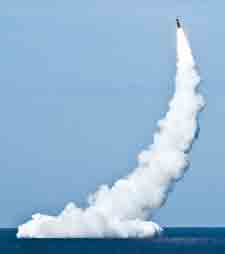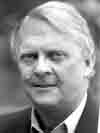| Home | Blog | Ask This | Showcase | Commentary | Comments | About Us | Contributors | Contact Us |

Is Obama's Nuclear Posture Review in safe hands?ASK THIS | August 229, 2011The general outline of the U.S.'s new nuclear war plan has been set by President Obama, who says we should be working our way to a world without nuclear weapons. But the details are being written by a national security bureaucracy that has a big stake in the nuclear status quo. And it's all happening in the dark. Can reporters bring the process into public view? Editor's note: In April 2009, President Obama famously promised to "reduce the role of nuclear weapons in our national security strategy," and expressed "America's commitment to seek the peace and security of a world without nuclear weapons." A year later, Obama released his Nuclear Posture Review, laying out new, more limited rules for the use of nuclear weapons and at least in theory moving us closer to his vision of the future. But now the actual implementation of these new rules is in the hands of the nuclear-weapons bureacracy. Robert S. Norris, a senior fellow at the Federation of American Scientists and co-author of a recent article for the Bulletin of the Atomic Scientists, is concerned that this process is taking place outside of public view, and suggests some questions reporters should be asking about it. By Robert Standish Norris The United States still has thousands of nuclear weapons and the Nuclear Posture Review process is about creating a plan for how they might be used. It's an enormously difficult topic for a journalist to report, as it concerns very highly classified matters. Nevertheless certain questions could be posed to officials to try and understand what is occurring. Q. Has the process of implementation of the NPR begun? If so, how far along is it? Q. Have the White House and the National Security Council provided detailed instructions to direct the Pentagon as it translates broad goals and concepts into more specific plans? Q. Who are the key players involved? Is there a specific person who oversees the entire process? Q. Will the absence of General James Cartwright make any difference in the outcome? Those who support Obama's goals of less reliance on nuclear weapons saw Cartwright as a key alley. As head of Strategic Command from 2004 to 2007, Cartwright was in charge of developing our nuclear war plan -- and carrying it out. But he also had many other responsibilities with conventional missions, and it was generally held that he saw little utility in nuclear weapons. In 2007, he became Vice Chairman of the Joint Chiefs of Staff and it was said that Obama relied on him for advice. But he was passed over when Army General Martin Dempsey was made chairman of the Joint Chiefs, and retired this month. Q. Is there resistance to those goals in the Pentagon, or elsewhere? From whom?
|




